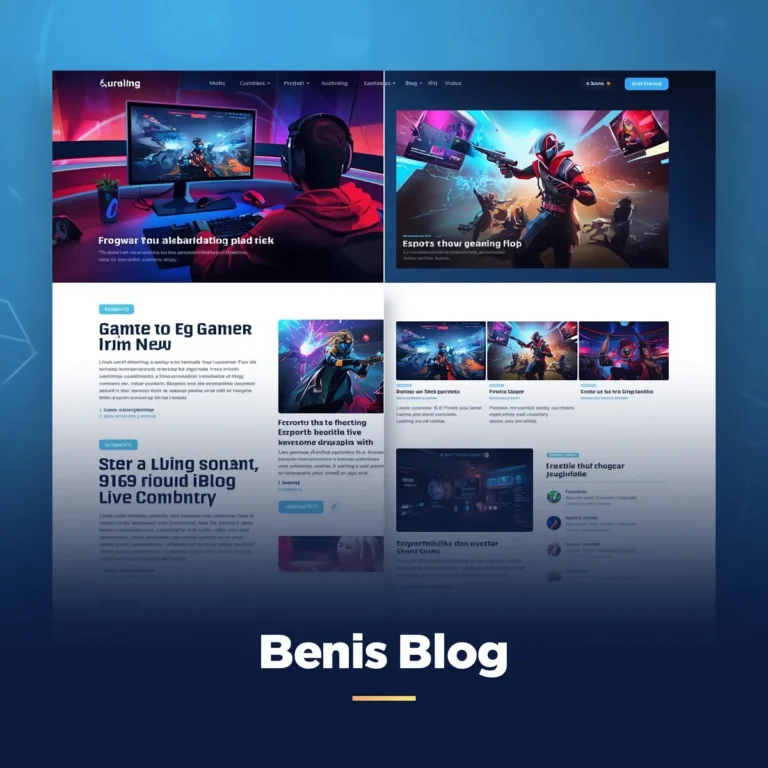Golf has long been considered a sport of tradition, calmness, and precision. On the other hand, gaming is fast, dynamic, and technology-driven. The idea of gamer golf brings both worlds together, creating a fascinating mix of competitive play, innovation, and fun. Whether you’re a golf enthusiast exploring gaming culture or a gamer curious about golf, this concept has started shaping a new experience that blends digital entertainment with real-life sport.
In this article, we’ll explore what gamer golf means, how it is growing, its connection to esports, and why it appeals to both athletes and gamers worldwide.
What Is Gamer Golf?
At its core, gamer golf refers to the integration of gaming technology with the sport of golf. This can include:
- Virtual golf simulators where players use realistic clubs to swing in front of digital screens.
- Esports-style competitions with live audiences and streaming platforms.
- Mobile and console golf video games that capture the spirit of the sport.
- Tech-driven golf training apps and devices designed for gamers who enjoy stats, data, and performance tracking.
The result is a unique category that bridges traditional sports and modern gaming culture, offering new ways for people to enjoy golf without always needing to step onto a physical course.
The Rise of Gamer Golf
The popularity of gamer golf is linked to several global trends:
1. Esports and Streaming Culture
Gamers thrive in environments where entertainment and competition merge. Golf simulators and online tournaments allow fans to watch, stream, and interact in real-time, just like other esports events.
2. Technology in Sports
From VR headsets to swing sensors, technology is transforming how golf is practiced and played. Gamer golf fits perfectly into this shift, making the sport more appealing to tech-savvy generations.
3. Accessibility for Beginners
Golf courses can be intimidating for beginners, but gamer golf reduces barriers. With virtual settings, anyone can practice or play casually without pressure.
4. Younger Generations Driving Change
Millennials and Gen Z are less focused on traditional golf clubs and more interested in interactive experiences. Gamer golf caters directly to their preferences.
Different Forms of Gamer Golf
Gamer golf doesn’t come in one form—it’s a flexible concept that adapts to both digital and physical environments.
1. Golf Simulators
High-tech simulators allow players to swing real clubs and track their shots digitally. These simulators are popular in golf lounges, bars, and even homes. They provide realistic physics while letting players “visit” world-famous golf courses virtually.
2. Console and Mobile Golf Games
From classic titles like Tiger Woods PGA Tour to modern games like PGA Tour 2K and casual mobile apps such as Golf Clash, these games bring golf into the gaming world. They allow multiplayer competition and online tournaments, enhancing the gamer golf experience.
3. VR Golf Experiences
Virtual reality takes immersion to another level. Players can feel as if they are standing on a lush green course, practicing swings in realistic environments without leaving their room.
4. Hybrid Gamer Golf Events
Some venues host hybrid tournaments that combine in-person simulator play with live streaming. This attracts both golf fans and gaming enthusiasts.
Why Gamer Golf Appeals to Players
The blend of gaming and golf may seem unusual, but it offers several unique benefits:
1. Entertainment Factor
Golf becomes more fast-paced and engaging when combined with gaming elements. Players can enjoy mini-games, challenges, and interactive competitions.
2. Learning Tool for Beginners
For those who want to get into golf, gamer golf offers a stress-free entry point. It helps beginners understand swing mechanics, scoring, and strategy before stepping onto a real course.
3. Community and Social Interaction
Just like multiplayer games, gamer golf creates a community environment. Friends can gather at simulator venues or compete online, making it a social activity.
4. Performance Tracking
Many gamer golf systems include detailed analytics on swings, ball trajectory, and accuracy. This appeals to players who enjoy tracking progress like they do in video games.
Gamer Golf in Esports
The competitive gaming industry has grown into a multi-billion-dollar market, and gamer golf has started carving its niche within it. While not as large as esports giants like League of Legends or Counter-Strike, golf tournaments in the digital space are expanding.
Online Golf Tournaments
Platforms host competitive leagues where gamers worldwide compete virtually. These tournaments mirror professional golf but with added accessibility and entertainment value.
Live-Streaming and Influencers
Twitch and YouTube streamers are exploring golf simulators and virtual golf games, attracting new audiences. This exposure pushes gamer golf closer to mainstream esports recognition.
Sponsorship and Branding Opportunities
Golf brands, tech companies, and gaming firms see gamer golf as a fresh opportunity to target younger audiences while modernizing the sport’s image.
How Gamer Golf Benefits Traditional Golf
Interestingly, gamer golf doesn’t just appeal to gamers—it also supports traditional golf by:
- Attracting new players: Virtual experiences encourage people to try real golf.
- Boosting training: Data-driven simulators improve professional and amateur practice sessions.
- Expanding global reach: People who don’t have access to courses can still enjoy the sport digitally.
By merging with technology, golf opens itself to future generations who may otherwise overlook it.
Challenges in Gamer Golf
Despite its potential, gamer golf faces some challenges:
- Cost of Technology: High-end simulators and VR equipment can be expensive, limiting accessibility.
- Purist Resistance: Traditional golfers may resist the gamification of their sport, preferring classic formats.
- Market Awareness: Gamer golf is still relatively new, and not all audiences are aware of its benefits.
Overcoming these challenges requires education, marketing, and making technology more affordable.
The Future of Gamer Golf
Looking ahead, the future of gamer golf seems bright. With continuous advancements in AI, AR, and VR, the experience will only become more immersive. Potential trends include:
- Augmented Reality Courses where digital overlays enhance real-world play.
- Global Esports Leagues dedicated specifically to golf simulations.
- Cross-Platform Experiences combining consoles, VR, and real-life golf tracking.
- Community Hubs where gamer golf acts as both entertainment and social gathering.
As technology evolves, gamer golf will likely become a mainstream category, appealing to both traditional sports fans and gaming communities.
Conclusion
Gamer golf is not just a passing trend—it represents the fusion of tradition and innovation. By blending golf with digital gaming, it creates a unique experience that attracts new audiences, provides learning tools, and even strengthens the sport’s global presence.
From simulators and VR to esports tournaments and mobile apps, gamer golf is redefining how people view both gaming and golf. Whether you’re a lifelong golfer or a passionate gamer, this hybrid world offers a chance to enjoy the best of both.
The future of gamer golf promises growth, inclusivity, and innovation, ensuring it plays a key role in the next chapter of sports and entertainment.





